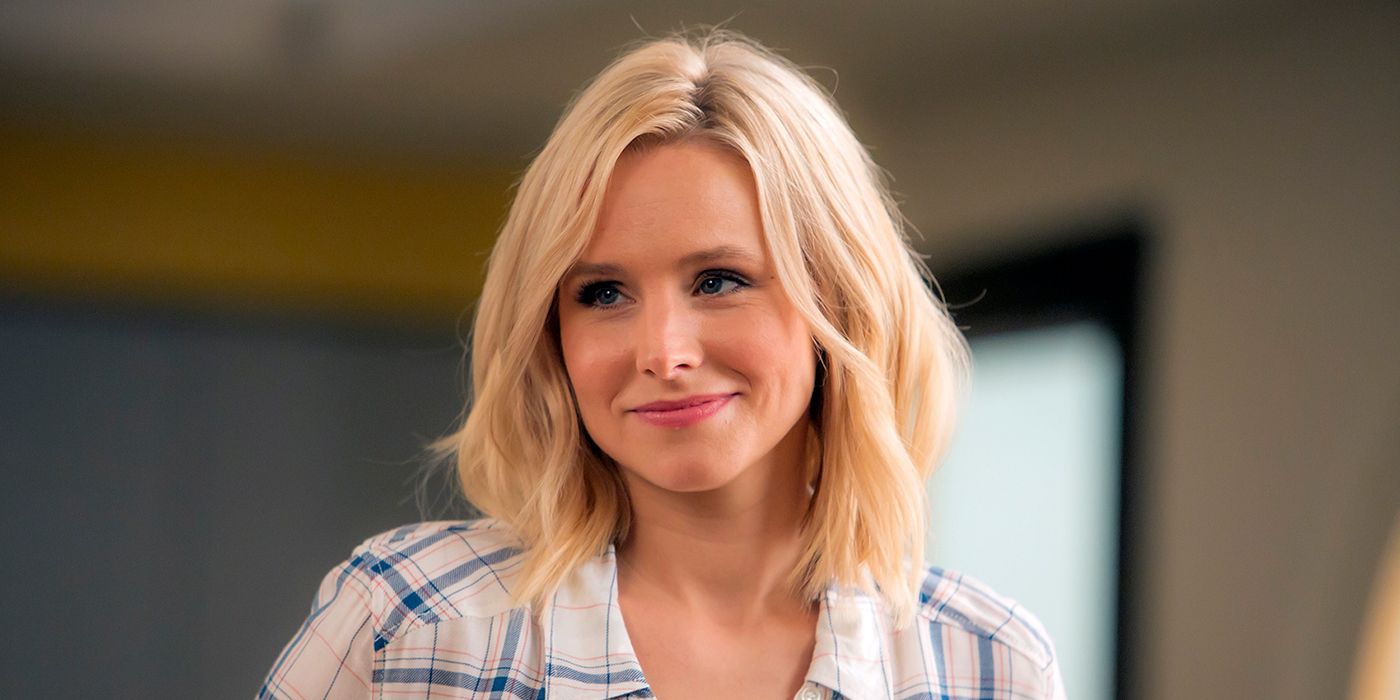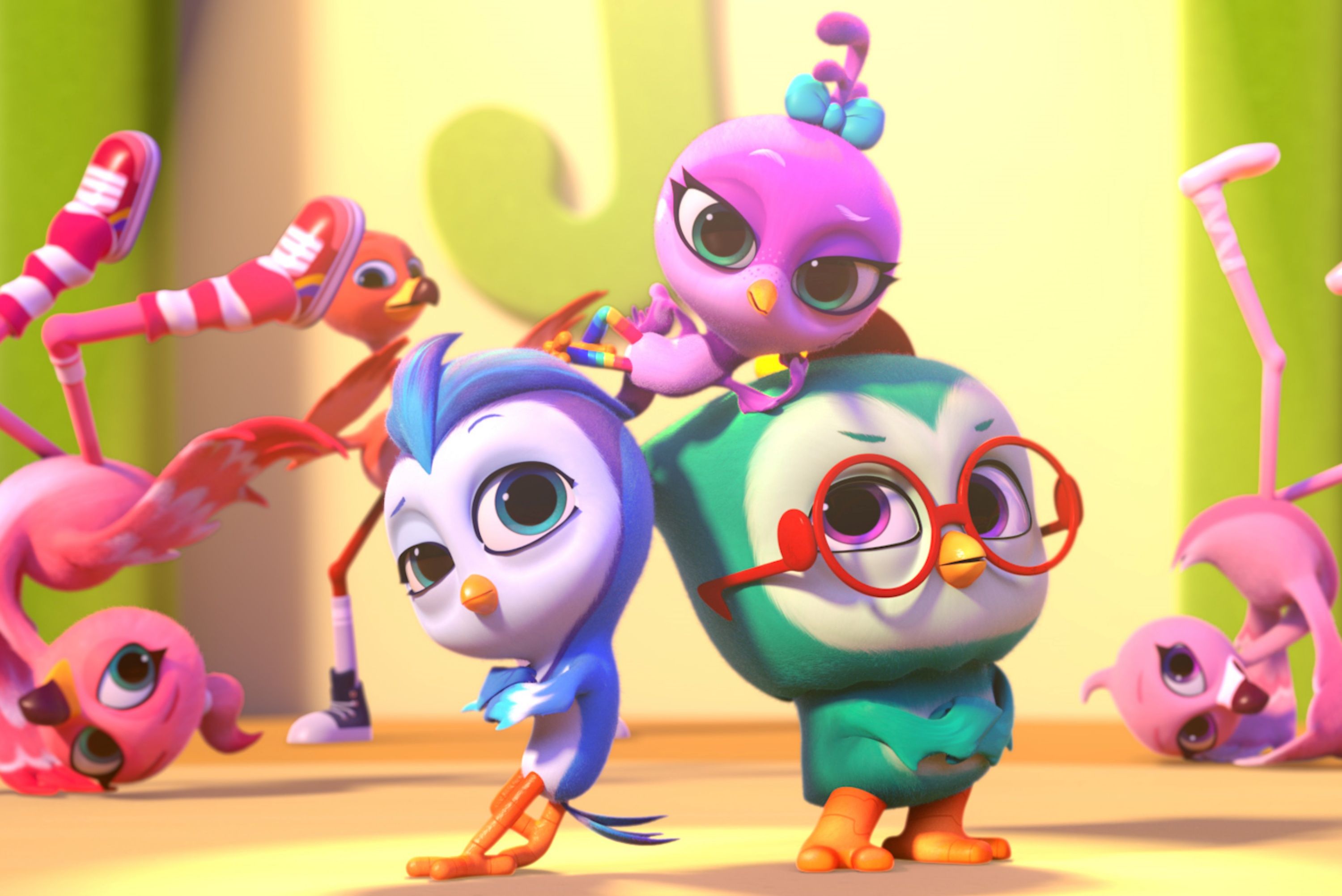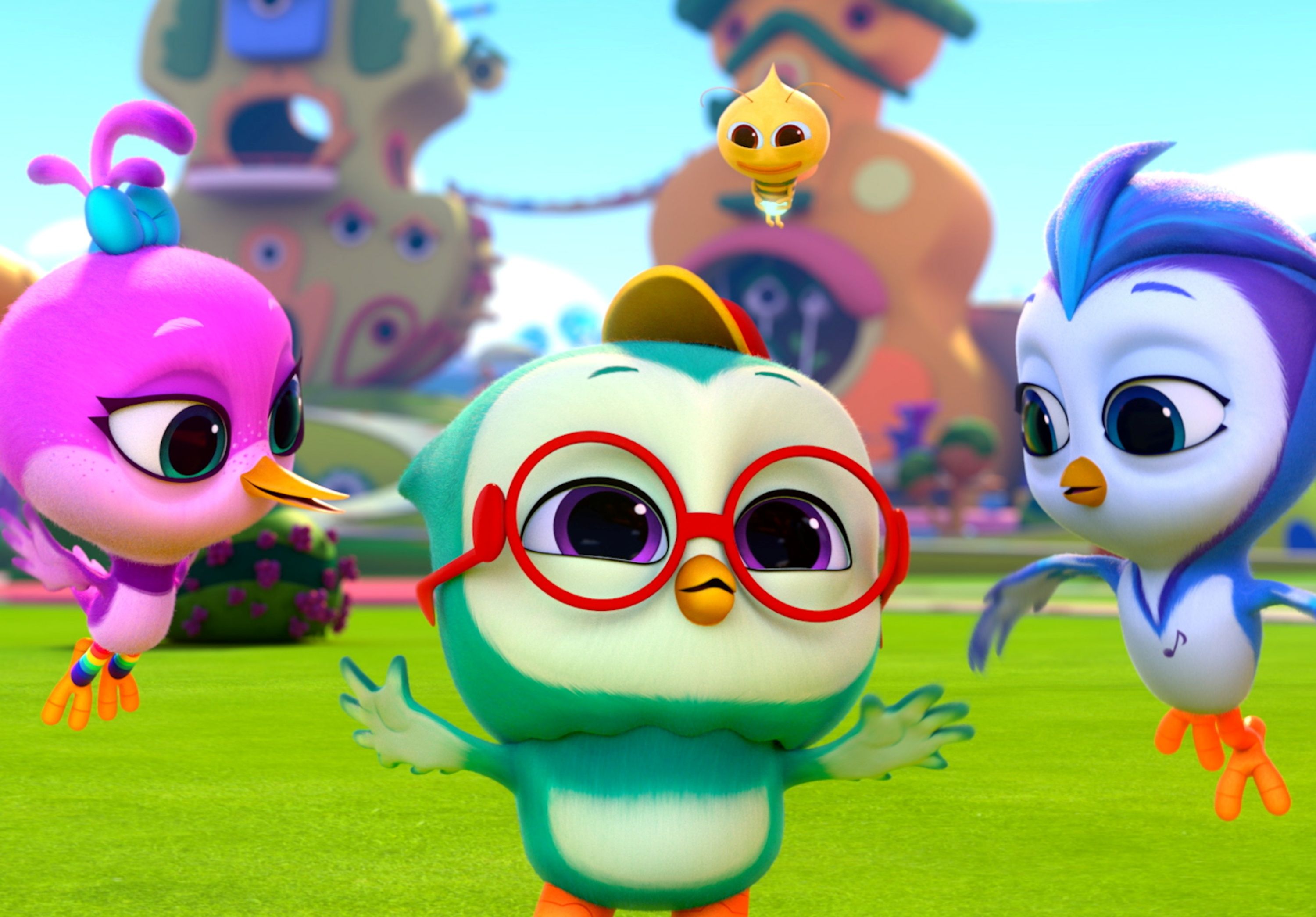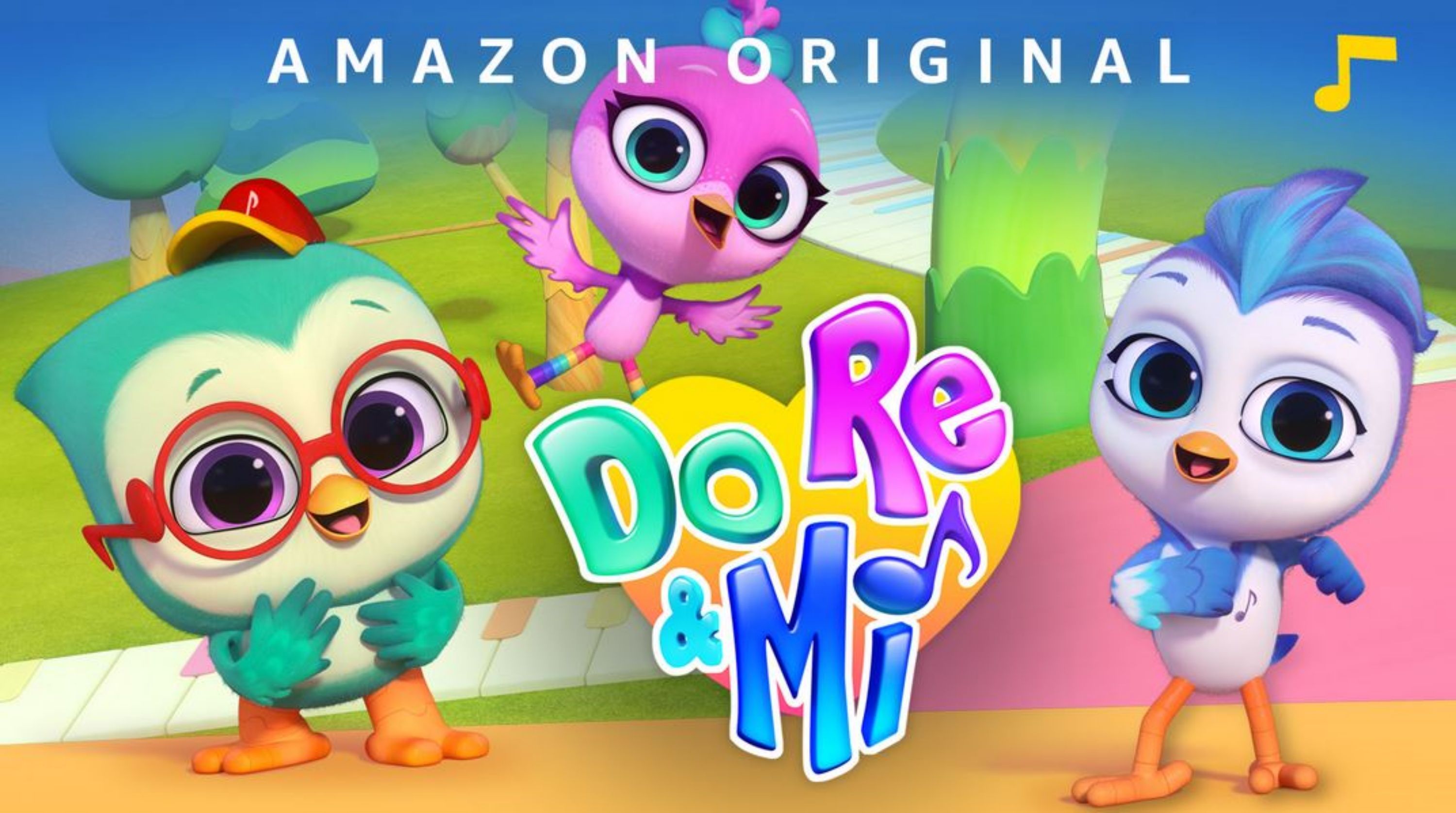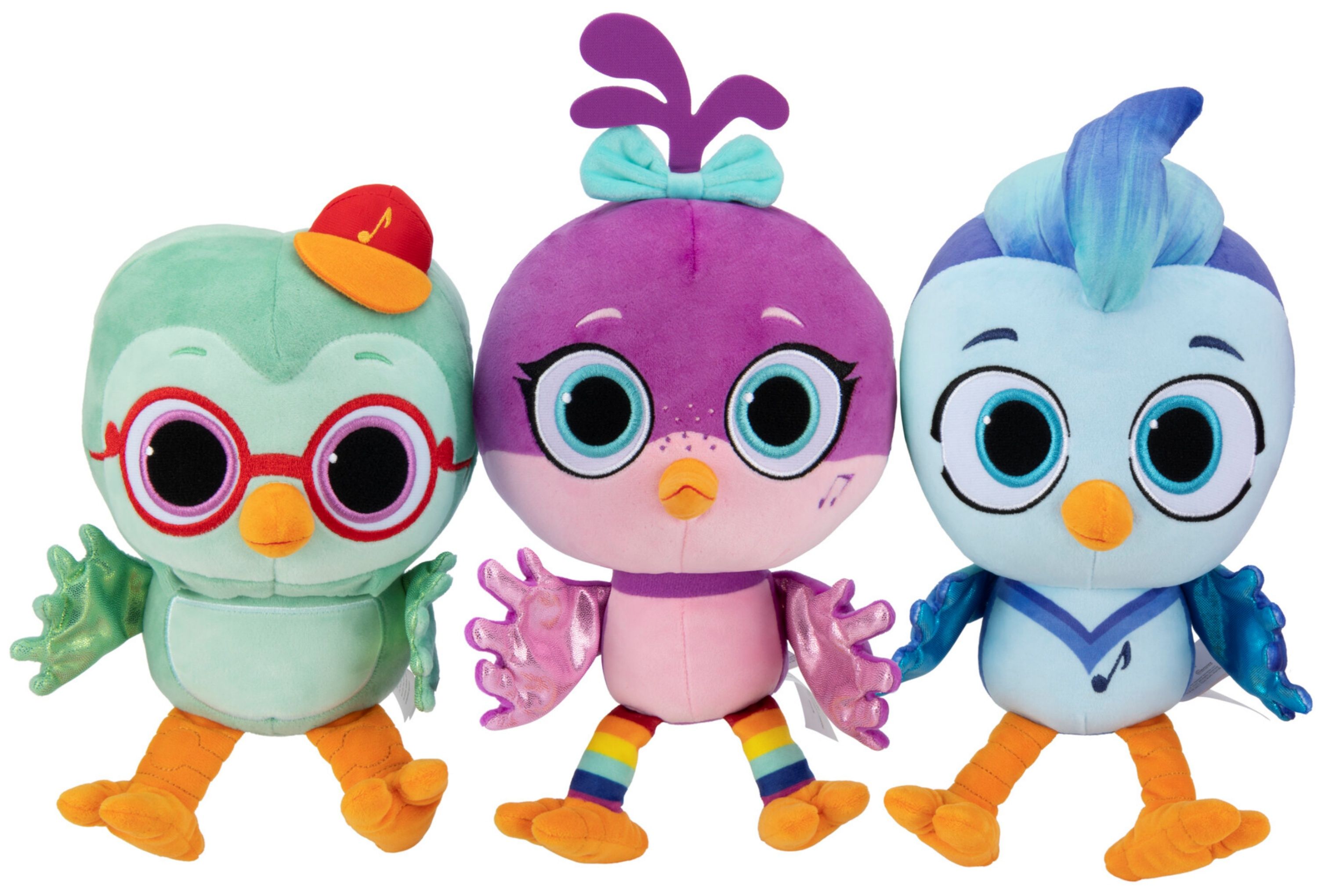The Amazon original animated series Do, Re & Mi is geared toward preschool-aged children, but the trio of bird buddies – Do (voiced by Luke Youngblood), Re (voiced by Jackie Tohn) and Mi (voiced by Kristen Bell) – at its center go on musical adventures that are fun, educational, and filled with catchy original tunes that span a variety of genres. By watching, kids and families will discover new sounds and melodies while they learn to move to the beat and see how music can play a role in everyday life.
During this 1-on-1 interview with Collider, Bell, who’s also an executive producer on the series, talked about how she got involved with Do, Re & Mi, why she wanted to get into voice work and what she loves about the challenge of it, taking the time to get this show exactly right, loving the songs, and the teaching materials and toys that have evolved out of the project. She also talked about how she came to be doing the game show Family Game Fight with her husband, Dax Shepard, and what she loves about the experience.
Collider: How did Do, Re & Mi come about? Were you like, “Okay, I’m a Disney princess, I’m the voice of Gossip Girl, I produce a game show, so now I’m getting into preschool programming”?
KRISTEN BELL: It was way more organic than that. Two of my friends, Jackie [Tohn] and Michael [Scharf], had this idea about a show that would teach kids music education under the guise of entertainment. I thought, “That’s something I can really get behind.” My kids go to public school and in every public school everywhere, the first thing to go with a budget cut is the music program. I literally would not be sitting here today without having studied music. It’s what brought me to acting. It’s what made me, as a human being, and I rely on it so much to regulate myself. I’ve also, as a parent and just a psychology nerd and a brain science nerd, read about how much it can help the human brain. It’s why we use Baby Mozart. At a young age, it can change the neuroplasticity of your brain. It can help you be a better mathematician. It can help you with social skills, if you have a music education in your life. Knowing that would be cut, I thought, “I know I can help make entertaining projects, but how do we take this series to someone who will take the education seriously as well and get it in front of kids who don’t have a music education.”
Weirdly, Gaumont, the production company, and Amazon were perfect. Alongside the show, after kids fall in love with the characters and they think they’re getting an entertainment show, which really Jackie and I like to call a sneak teach, they’re gonna be able to have apps where you don’t feel guilty, as a parent, handing your phone over because they’re learning and practicing music and you know their brain is growing. And within each episode, we somehow figured out how to incorporate an emotional lesson, which every children’s show has to do, and a music genre lesson, which there are 52 different ones represented because different genres are really important and you’ve gotta learn about yacht rock, reggae, blues, jazz, Olivia Newton John, the ‘80s and hard rock, and then there’s also a music theory lesson. An example is when Jackie Tohn’s character, Re, tries out for a dance team, she gets too fatigued. She needs to rest, but she won’t let herself, so the song is called “Listen to your Body.” They’re getting a music theory lesson about what rests are in music, but also an emotional lesson.
Have your kids watched the show? Have they given you any feedback on the show itself?
BELL: Yes, they love the show. They [first saw it with] all the animatics, which is what it looks like when you take pencil to paper and it’s like a flipbook. They were into it, at that stage. When it captured their attention, just with the music and this pencil drawing of these birds, I was like, “We have something really special here.”
You’ve done voice work in animation for a bit and obviously you’ve had huge success in that area with Frozen. What initially made you want to pursue voice work in animation? Was there a specific project that made you want to do it, instead of just live-action performing?
BELL: Like I said, music was so important to me, as a kid. It’s how I regulated. It’s how I spent all my alone time, listening to music and watching Funny Girl and My Fair Lady on repeat. And then, it was about getting a top hat and a scarf and doing the different parts to “Who Taught Her Everything She Knows” from Funny Girl in the mirror, or doing “All I Want is a Room Somewhere” from My Fair Lady. Storytelling through music, I always connected to more. Now I know, based on the brain science, you connect to things through music. It’s why there that old story about Chinatown being shelved forever because it had the wrong score, and then they dusted it off, put a different score, and it won an Oscar. It can really connect you to a story. It made me feel completely alive and it’s what brought me to acting. So, once I acted for awhile, I figured out that I could reincorporate music. I started out doing Broadway, where music was a major part of it. And then, coming out [to L.A.] and doing non-musical roles, I was just yearning for that piece of soul that I missed. When Frozen came about, I had just been singing in benefits out here and it felt like the perfect way to do something that I loved so much, which was be a part of music and singing.
Have your feelings about doing voice work evolved, over the projects you’ve done. You did Frozen in this bubble where nobody knew what it was. And then, the sequel must have been such a different feeling, doing it after it had become such a big thing. How have your feelings about it evolved, especially as you’ve learned what goes into it?
BELL: With Frozen, we just hit the jackpot. We tried the best we could do to tell a story that people would love and that would resonate. That’s what I learned, being in that Disney machine, to be honest. Frozen II wasn’t greenlit until we had an idea. It could never have just been Frozen Episode 2, Elsa loses her shoes. It could never be that. It had to be about something more monumental. It was about, what do you do when you’re alone? How do you deal with anxiety? What is your real purpose in life? True things like that. I think what I learned throughout that process and being a voice actor is that, as a voice actor, you have one tool to tell a story, which is very intriguing to me. I’m pretty competitive. To have one tool, where I have to figure out how to use tone, the shape of my mouth, breath work, and inaudible sounds to make you feel something, it’s challenging and it’s wonderful. I have to figure out how to make a sound to make you know that I’m sad. That’s intriguing to me. And then, throughout the life of Frozen, I understood how nobody needs garbage content. I guess I should have known that, but not everything works. This project has been in development for five years because we were waiting until we got it right. When I say that we are combining an emotional lesson with a music genre lesson and a music theory lesson, it took awhile for us to figure out how to balance that and how to fuse that. We weren’t gonna make the show until we knew how to do it right.
This obviously is a special show, but there are also cute, fun, and catchy songs. What do you enjoy most about doing those songs?
BELL: When they’re earworms, they’re actually like cool Bieber hooks. Even though there’s a bunch of different genres represented, the music writers we had, Jackie Tohn and Dave Schuler, write for very prominent artists. Dave has written for Pink and tons of people that we’ve heard of. They know how to make and produce music that is sticky, in a good way. “Baby Beluga” is wonderful and it has a place, but we wanted to make a show with music that doesn’t make parents want to put the television in the microwave. I feel like we nailed that because there are so many licks in this little kid’s show that I’m humming around the kitchen, and I’m not mad at it.
What made you and Dax Shepard want to do something like Family Game Fight? You mentioned being competitive, but trying to do it at home is one thing. It’s a little different when you’re actually full-on.
BELL: First of all, Dax and I love working together. I would say the same thing about Jackie on Do, Re & Mi. I like with my trusted friends. Jackie is a great business partner because we trust each other on Do, Re & Mi. Dax, I would work with every day for the rest of my life, if I could. I trust him. I trust his intelligence, as far as how to make a show and what works comedically, which I care immensely about. He says this great thing, “You don’t often get to go to work with your partner and see them kill at their job.” It’s really pretty sexy. If you have a CPA partner, you don’t get to go and see them slay a spreadsheet and save the day. But with Family Game Fight, I do get to see that. We leave a little bit more passionate about each other. He is dyslexic and if he has trouble reading the teleprompter, he knows I’ll take over. If I don’t know what to say in an improv moment, I know he’ll take over. We have each other’s backs. Beyond that, we genuinely love playing games. It takes a lot of our free time. In fact, almost all of our free time.
We played this game on Ellen, a couple of years ago, called Tastebuds, and it was an absolute unmitigated disaster. We were genuinely fighting in it. We could not figure out how to communicate. And we’re always like, “We can communicate so well.” But we watched it later, when we had cooled off, and we were like, “Objectively, that’s the funniest thing we’ve ever done. That’s the funniest thing we’ve ever been a part of. As entertainers, how do we make more of that?” People seem to love it. Even though we were in a fight when it happened, we could objective see what good television it was. So, we were like, “What if we play games and we’ll make a pact that we won’t actually get mad at each other, but we’ll play against each other and play with the families because why host a game show, if you’re not gonna get to play the games?” Dax likes to say, “We don’t like to go to an orgy and not participate.” I don’t use that example, but we wanted to be a part of the games as well.
What do you enjoy about working with those families? Whether it’s families that are really families or they consider themselves to be families, what do you enjoy about the unpredictability of that?
BELL: First of all, meeting anyone outside of my bubble is exciting for me. I find that I stay in a growth mindset because of that. I know I live in Los Angeles. I know it’s a bubble. I like meeting people outside of it and hearing different perspectives. I believe in communication and education. I wanna hear different perspectives. Getting families together, even though it’s called Family Game Fight, it was of paramount importance to us [to incorporate how] the idea of family has been completely redefined after this pandemic. Sometimes it’s your pod. Sometimes it’s your neighbors. Sometimes it’s a group of sisters. Sometimes it’s employees. We had a group of firefighters. We had a group of doctors that spend all of their time together and they consider themselves family. I have a lot of people in my life that I consider family that are not, in any way, blood related. I feel like we wanted to represent that, so we had a lot of different types of families. Some of them are. Some of them are parents and kids. Some of them are cousins. We just wanted to get that familial vibe of who you’d have on your team, and then have a really fun game surrounding it.
With Do, Re & Mi, why was it important to do so many other things with it, and turn it into toys, a book, a mobile game, a teaching guide, and all of those things?
BELL: To be honest, the main importance was to get to curriculum. We wanted something fun and easy for teachers to be able to use, or even parents, if they wanted to provide music education for their kids that they’d pay attention to. There’s a lot of music education programs out there, but we also know, as writers and storytellers, if you have [these characters] and your kid identifies with [one of them], your kid will pay attention. So, to create an entertainment-based show first was the goal to get into curriculum. The show is gonna have these teaching aspects, your kid is never gonna notice it, and on top of that, you’re gonna feel okay about downloading the app on their tablet and letting them play with it, with the characters that they know and love. Kids like things that feel familiar, so [the plush toys] who talk, my daughter sleeps with. She likes to hold onto it. It feels familiar to her. She wants to see what Re is doing. She wants to imagine herself as Re. We wanted to get everything to a curriculum where kids would pay attention, and an entertainment-based show, apps, and toys were all a part of getting there.
And the characters are so cute. I love that they all have their own personalities, but their own personality quirks too, and it’s all about accepting that in everybody.
BELL: Yeah. Music is a lot about teamwork. There are other characters in the show, like Maestro Moon who conducts the orchestra in the sky, so they’re learning what an orchestra is. And the two stars you see are named Harmony and Melody, and they always sing together. They often argue, but when they work it out, they make beautiful music together, metaphorically and actually. So, the kids are learning all of these different music theory techniques through these adorable characters and we tried to be very representative. Jackie’s character always goes too fast and she never remembers to take a break and she’s really loud, so sometimes people don’t understand when she’s feeling insecure, but that’s who she is. And Luke Youngblood, who’s amazing and he’s in our trio and plays Do, he’s not a good flier. That’s why his wings are smaller. If you’re playing kickball and you’re the only kid who can’t kick the ball, you feel so less than. His character is always looking at, what are his other skill sets? He can’t fly, but he can make a catapult. He can figure out how to get himself up to the top of the tree on a pulley. He’s got other skill sets. We’re hoping that kids can learn, if you don’t feel like you’re fitting in immediately, you have other skill sets that make you valuable.
Do, Re & Mi is available to stream at Amazon Prime Video.

